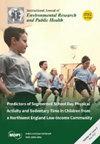评估西班牙语运动员体育运动中性暴力问卷的可靠性
3区 综合性期刊
Q1 Medicine
International Journal of Environmental Research and Public Health
Pub Date : 2024-09-16
DOI:10.3390/ijerph21091214
引用次数: 0
摘要
在学校体育运动中,性骚扰和性虐待,特别是教练对运动员的性骚扰和性虐待,仍然是一个令人担忧的普遍问题。为了更好地了解和预防与此类不当性行为相关的特定教练行为,研究人员开发了体育性暴力问卷。虽然该测量工具的可靠性已在盎格鲁-撒克逊文化背景下进行了测试,但该问卷是否适用于其他文化背景尚不得而知。本研究旨在分析最初以英语设计和开发的体育运动中的性骚扰问卷的内部一致性和可靠性。来自巴斯克地区一所大学的 146 名本科生(52 名女生,94 名男生)参与了这项横向研究。问卷在两周内进行了两次测试,以评估重测可靠性。体育运动中性暴力问卷的内部一致性很高,所有参与者的认知和经历的 Cronbach's alpha 值分别为 0.891 和 0.813。针对不同性别的分析显示出相似的可靠性,女性在感知方面的α值略低。尽管在 8 个感知项目和 1 个体验项目上,测试与重测之间存在明显差异,但科恩卡帕分析表明所有项目的一致性都很好;不过,其中一些项目的一致性较低(如 0.13)。总之,本研究强调了问卷的整体可靠性,并表明其作为西班牙体育性暴力测量工具的有效性。尽管如此,本研究的结果还是强调了进一步研究的必要性,以提高问卷的稳定性,并更好地了解体育运动中性暴力的性别差异和体验。本文章由计算机程序翻译,如有差异,请以英文原文为准。
Assessing the Reliability of the Sexual Violence Questionnaire in Sport among Spanish-Speaking Athletes
The prevalence of sexual harassment and abuse in school sport, specifically by coaches against their athletes, remains a concerning and pervasive issue. In an attempt to better understand and prevent specific coach-behaviours associated with such sexual misconduct, researchers have developed the Sexual Violence Questionnaire in Sport. While the reliability of this measurement tool has been tested in Anglo-Saxon cultural contexts, it is not known whether the questionnaire is applicable to other cultural contexts. This study aimed to analyse the internal consistency and reliability of the questionnaire on sexual harassment in sport, originally designed and developed in English. A sample of 146 (52 female, 94 male) undergraduate students from a university in the Basque Country participated in this cross-sectional study. The questionnaire was administered twice over a two-week period to assess test–retest reliability. The internal consistency of the Sexual Violence Questionnaire in Sport was high, with Cronbach’s alpha values of 0.891 for perceptions and 0.813 for experiences across all participants. Gender-specific analysis showed similar reliability, with females having slightly lower alpha values for perceptions. Although significant differences were observed between the test and the retest on eight perception items and one experience item, Cohen’s kappa analysis indicated agreement on all items; however, some of them were low (e.g., 0.13). In conclusion, the study highlights the questionnaire’s overall reliability and suggests its effectiveness as a tool for measuring sexual violence in sport within the Spanish context. Nonetheless, the findings of this study underscore the need for further research to enhance the instrument’s stability and to better understand gender differences in perceptions and experiences of sexual violence in sport contexts.
求助全文
通过发布文献求助,成功后即可免费获取论文全文。
去求助
来源期刊

International Journal of Environmental Research and Public Health
Medicine-Public Health, Environmental and Occupational Health
CiteScore
7.30
自引率
0.00%
发文量
14422
审稿时长
1 months
期刊介绍:
International Journal of Environmental Research and Public Health (IJERPH) (ISSN 1660-4601) is a peer-reviewed scientific journal that publishes original articles, critical reviews, research notes, and short communications in the interdisciplinary area of environmental health sciences and public health. It links several scientific disciplines including biology, biochemistry, biotechnology, cellular and molecular biology, chemistry, computer science, ecology, engineering, epidemiology, genetics, immunology, microbiology, oncology, pathology, pharmacology, and toxicology, in an integrated fashion, to address critical issues related to environmental quality and public health. Therefore, IJERPH focuses on the publication of scientific and technical information on the impacts of natural phenomena and anthropogenic factors on the quality of our environment, the interrelationships between environmental health and the quality of life, as well as the socio-cultural, political, economic, and legal considerations related to environmental stewardship and public health.
The 2018 IJERPH Outstanding Reviewer Award has been launched! This award acknowledge those who have generously dedicated their time to review manuscripts submitted to IJERPH. See full details at http://www.mdpi.com/journal/ijerph/awards.
 求助内容:
求助内容: 应助结果提醒方式:
应助结果提醒方式:


